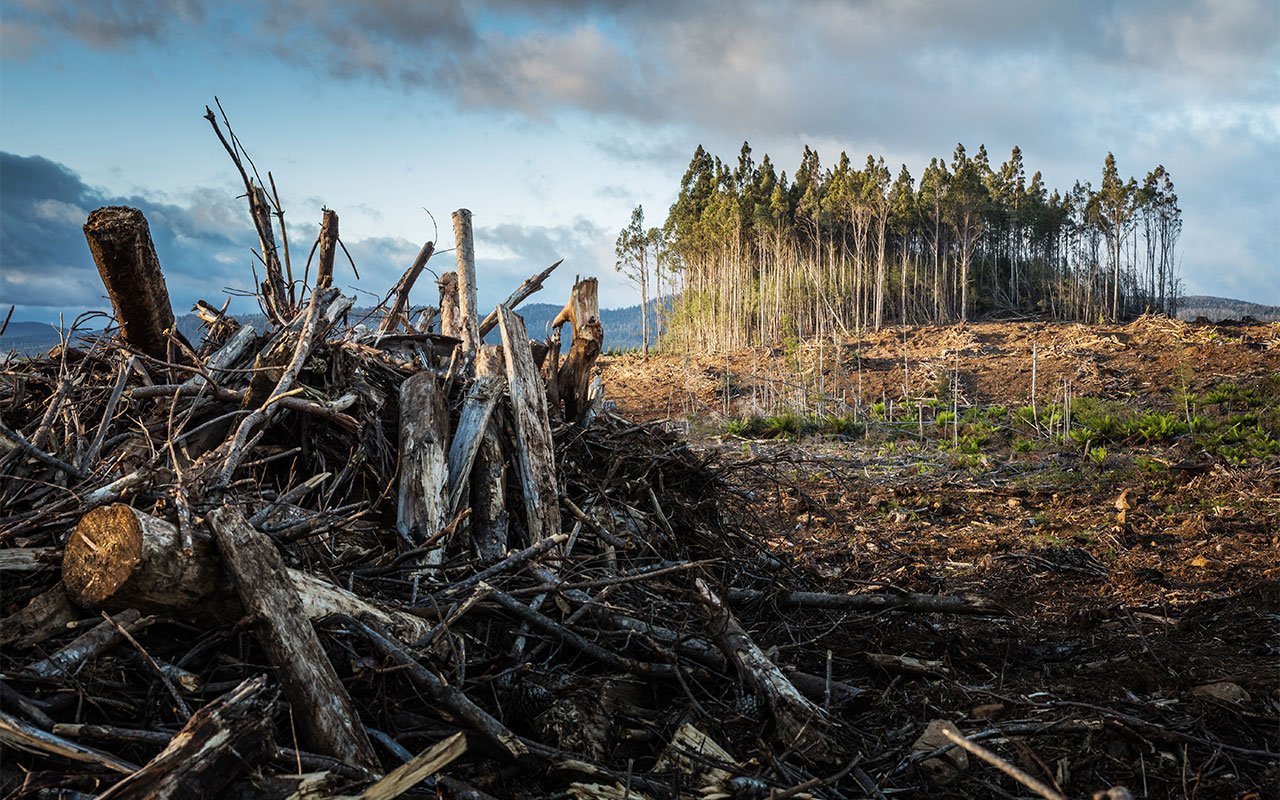The Nature Conservation Council of NSW has today released a new report from Frontier Economics which reveals for the first time that hundreds of millions of taxpayer dollars have been gifted to the taxpayer owned logging business Forestry Corporation NSW over the past five years.
The report finds the taxpayer-owned logging business received $246.9 million worth of grants since 2019/20 financial year, while the hardwood division (which is responsible for native forest logging) made a loss of $28.2 million over the same period.
‘Our government is wasting millions of dollars propping up this dying and destructive industry,’ NCC Chief Executive Officer Jacqui Mumford said today.
‘In what other instance is it acceptable for a company to run at an almost $30 million loss after being given $250 million in taxpayer money? This money could provide at least 150 extra firefighters or nurses in regional towns.’
Increased scrutiny
The report comes at a time of increased scrutiny over Forestry Corporation NSW.

The taxpayer owned agency is facing prosecutions for several incidents and has recently been exposed for having failed to find endangered Southern Greater Gliders before beginning logging after it ‘surveyed’ for the nocturnal animal during the day.
In budget estimates this month CEO of the Environmental Protection Authority Tony Chappel revealed they are considering changing the rules which currently allow Forestry Corp to survey for nocturnal animals during the day.
This comes after NCC lodged a series of Breach Reports that found Forestry Corp is logging forests with the highest known numbers of the endangered Southern Greater Glider.
Key findings from the Frontier Economics Report Public native forest logging: a large and growing taxpayer burden include that state-owned logging companies, and the private industry itself, are being propped up through generous government subsidies and cross-subsidisation from the profitable plantation sector.
Additionally, public native forest logging has poor financial performance across all Australian jurisdictions. This places an unnecessary economic burden and risk to state governments, whilst also having a negative impact upon native forests and the wildlife that call them home.
Growing risks
The report suggests that the continuation of this industry exposes governments and the taxpayer to an increasing level of financial risk, with long-standing market changes reducing the demand for native forest products and putting downward pressure on prices.
Market changes include; the increase in competition in the domestic structural timber market from plantation softwoods, the increase in competition in solid wood markets from domestic and imported engineered wood products, and the increase in competition in export woodchip markets from domestic and foreign plantations.

NCC Chief Executive Officer Jacqui Mumford said, ‘The NSW Government needs to come to terms with the fact that native forest logging is a dying industry and make a plan for a transition.
‘How much more taxpayer money has to be wasted and endangered animals killed before this reality sinks in?
‘Forests are the lungs of the earth,’ she said. ‘They are essential to clean air, a sustainable climate and healthy ecosystems where plants and animals can thrive.
‘We’ve already destroyed far too much of the NSW bush. The remaining homes for our precious wildlife should be protected, not pulped.’





OK, let’s question the real Agenda and repercussions here.
Q: If ‘enviro-charities’ such as the NCS (et al) have their way, eventually what will happen to all these ‘uneconomic’ State Forests?
A: They will all end up as National Park “icons” with recreational users and the general public progressively excluded from large areas via multiple NPWS and city-centric political policy excuses. [EG: native habitat, save every tree, old growth, koala great park, native titles, secret men’s business, environment generally, economic reasons, management road and service disrepair, restricted budgets, etc., etc.]
After some 150+ years of renewable harvesting with co-use by recreational clubs and individuals, this will all be lost for future generations unless more people realise what is happening now & take counteraction against enviro-mentalist pressure.
Rob, you sound like a logger, delusional and unable to see the reality of this wholly unsustainable money pit of an industry. You talk about conservation measures as if they are bad and to be despised, do you really not see how bizarre you sound? Read the room, the majority of the country wants this industry gone, native forest logging needs to end, and it needs to end now, it has no positive attributes whatsoever.
In today’s (13/11//23) SMH Newspaper a report on Forestry Corporation NSW actions in Tallaganda State Forest –
‘Report finds 1200 breaches in native forest logging’, Laura Chung, Environment reporter;
“Forestry activists allege the NSW government-owned Forestry Corporation has breached regulations more than 1200 times in recent logging operations in Tallaganda State Forest, one of the last strongholds of the endangered greater glider.
Forestry Corporation failed to identify crucial habitat trees of greater gliders by searching for the nocturnal animals during the day rather than at night, and by conducting surveys from roads rather than in the forest itself, according to a report by Wilderness Australia, the World Wide Fund for Nature Australia and South East Forest Rescue, to be published today.
The NSW Environment Protection Authority has declared one suspension of operations due to impacts on the greater glider in the Tallaganda forest, near Braidwood in the south of the state.
Populations of the greater glider have declined by 80 per cent over the past 20 years due to logging, land clearing and bushfires.
The glider was listed as endangered in 2022.
Forestry Corp earlier this year said it had identified just one ‘‘den’’ tree – in which greater gliders nest in a hollow – in 1800 hectares of Tallaganda State Forest. The three conservation groups say they have found 27 such trees in just eight hectares and 20 of these had logging within 50 metres.
Under forestry regulation, all greater glider den trees need to be identified and protected with a 50-metre exclusion zone.
‘‘This astonishing failure to adequately conduct surveys which would identify and protect greater glider den trees before commencing logging means that it is likely that 1215 breaches have occurred across the seven logging compartments,’’ the report says.
The conservation groups surveyed the area at night when the gliders were active. Forestry Corp earlier this year said it did its searches for the nocturnal mammals during the day.
At the time, a spokeswoman for the corporation said it had met all requirements and there were no stipulations that surveys must be conducted at night. She said den trees were strictly defined and that meant someone had to physically see a glider entering or leaving.
Forestry Corporation has not logged in the forest since August. The EPA issued a stop work order after a dead greater glider was found 50 metres from a recently cleared part of the forest. The authority extended the order on Friday and it will remain in place until December 20. The EPA said in a statement: ‘‘Forestry Corporation of NSW has not yet addressed alleged deficiencies in previous stop work orders to search for and protect southern greater glider den trees.’’
Wilderness Australia chairman, former NSW Labor minister Bob Debus, said: ‘‘The time has come. This is the point at which we must move decisively to end the wanton destruction of carbon-rich native forest and to halt the extinction spiral of the greater glider.’’
WWF Australia threatened species and climate adaptation ecologist Dr Kita Ashman said: ‘‘It has been important to expose this destruction to as many people as possible. Australians want action. That starts with permanently protecting Tallaganda State Forest.’’
A Forestry spokesperson said it had no information from conservation groups relating to alleged breaches and that its operations were planned to comply with conditions of approval, regulated by the EPA.
‘‘Forestry Corporation identified and protected 5400 hollow-bearing trees in the harvest area during broad area habitat searches in Tallaganda State Forest,’’ the spokesperson said.
Conditions of approval, the spokesperson said, did not require Forestry Corporation to search for greater gliders entering or leaving tree hollows, nor did it require any specific searches for gliders.
Instead, the corporation was required to carry out flora and fauna surveys during planning and broad area habitat searches immediately before harvesting.”
That’s the end of Laura Chung’s report.
Premier Minns needs to get off his couch and end the ForestSlaughterFest, Now!